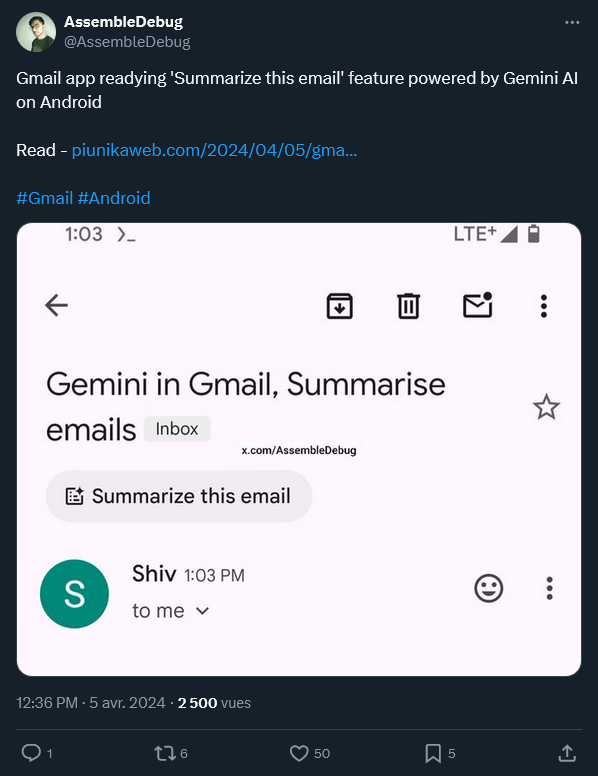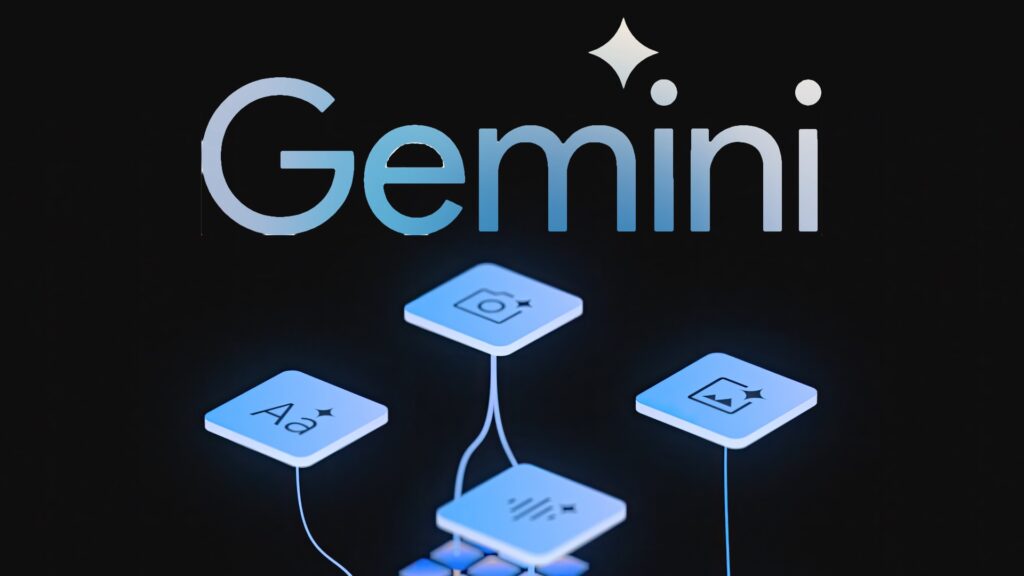Clues were found in the Android app for Gmail. They describe a functionality based on artificial intelligence. The principle ? Entrust Gemini, Google’s AI, to be able to summarize emails that are too long.
It is, in a way, the equivalent of AbrègeFrère, but for emails. If you don’t know this trend on TikTok, it’s an Internet user who gained popularity by summarizing the content of videos deemed too long – particularly those published by women, for which he was criticized.
It is exactly this concept that could soon spread through mailboxes. As noted by the Android Central site, in an article dated April 8, a function to summarize the point of an email was spotted in the Android application. This experimental service had been reported on X (formerly Twitter) a few days earlier.

In the visual circulating, we can see a “Summarize this email” button under the subject of the email, with an icon reminiscent of the aesthetic of the logo of Gemini, Google’s AI. By pressing on it, the Internet user would have a summary of the electronic missive. Practical for immediately grasping the essence, particularly if the text is considered too long to read.
Are you interested in AI news? Join our Artificial newsletter
Growing links between Gmail and Google AI
We know that there are bridges between Gmail and Gemini through Google Workspace Labs, an interface through which it is possible to experience the faculties of artificial intelligence in the services and products of the Mountain View firm. This includes the American giant’s webmail, as a help page reminds us.
In this context, Gemini can summarize a discussion thread (which is not quite the same thing here as summarizing an email). The tool is accessible from the moment the exchanges contain at least two responses. It is also possible to send other instructions, such as a list of actions to be taken appearing in the email.
This type of approach is not very innovative. Already in 2017, we were talking about Salesforce’s work to synthesize texts. Furthermore, as early as 2018, the Californian group attracted attention with the “smart compose” module, an intelligent writing functionality, expanded over time, to suggest answers and save time.


The principle of the tool is attractive for extracting what seems to be the heart of a letter and getting straight to the point. It is an extension of the vast shift that Google has taken in terms of artificial intelligence (in 2023, the company was already communicating on the prospects of letting AI write emails in place of the Internet user).
Questions remain at this stage: we do not know, for example, whether this button is visible every time or whether its presence depends on the length of the email (in fact, there is no need to summarize if the email is one line long). Another legitimate question: the issues of privacy and confidentiality, as a summary inevitably requires reading the mail.
Gmail already scans e-mail to respond to technical and security issues (countering spam and phishing, for example) or to combat certain offenses (files involving child pornography, for example). Targeted advertising, on the other hand, no longer uses emails.
Another expected question: the origin of the data used by the AI to summarize the emails and, above all, the fate that awaits the scanned emails. Google has started to respond to these issues — the content of emails is not, a priori, collected. Answers that will need to be clarified, if this function ends up being launched.
Subscribe to Numerama on Google News so you don’t miss any news!
